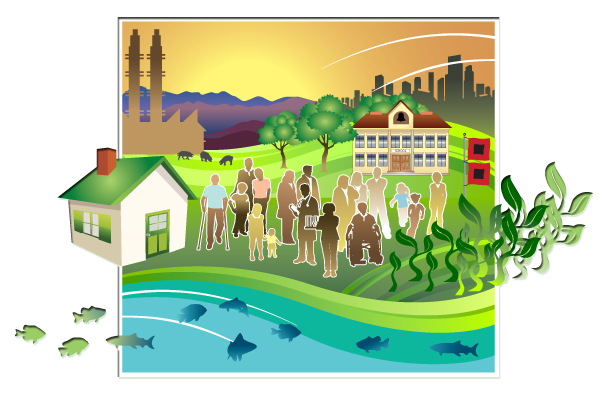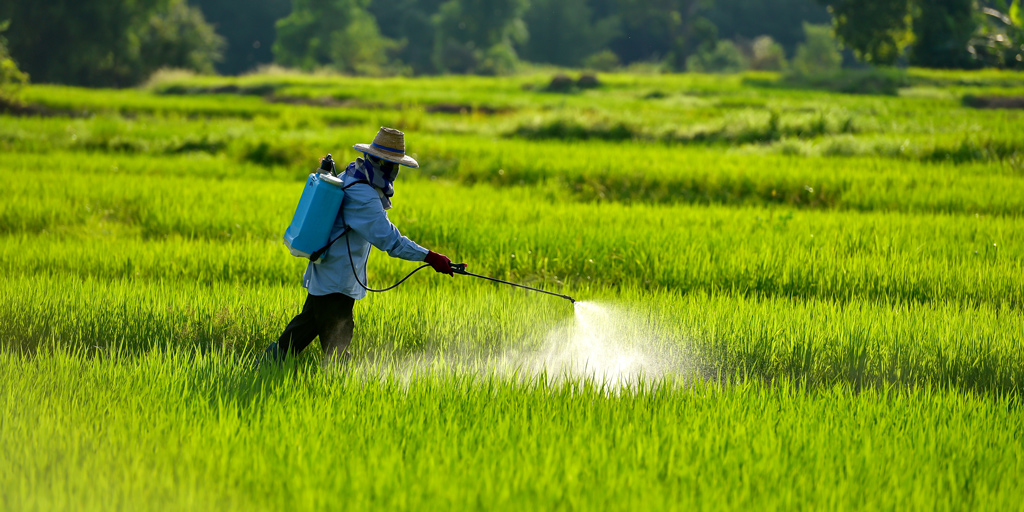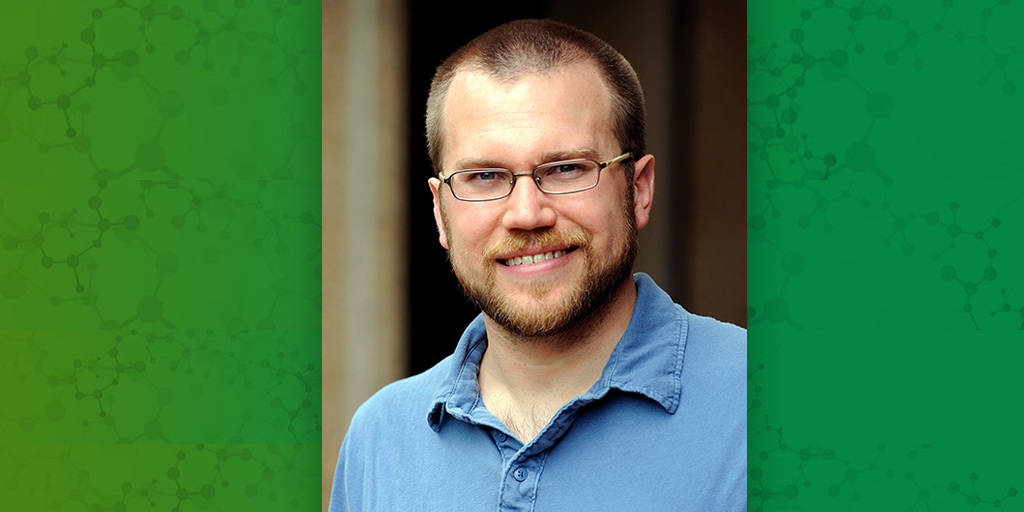Considering Socioeconomic Factors When Predicting Risk of Lead Exposure
Researchers from the University of Pennsylvania’s NIEHS-funded Center of Excellence in Environmental Toxicology developed an index to predict risk of lead exposure. The index is unique in that it considers socioeconomic and demographic factors in addition to environmental lead levels. It is intended to support decision-making when identifying geographic areas most in need of remediation. A goal is to assist health equity, which means everyone has a just opportunity to achieve optimal health. In a recent paper, researchers describe how they developed the Lead Index across Philadelphia.
Citizen Science Supports Soil Sampling
To develop a picture of soil lead levels throughout Philadelphia, researchers gathered data by collecting soil samples, using existing data from the Environmental Protection Agency, conducting student soil collections through Academically Based Community Service classes, and by receiving soil samples from community members at “soil workshops.”
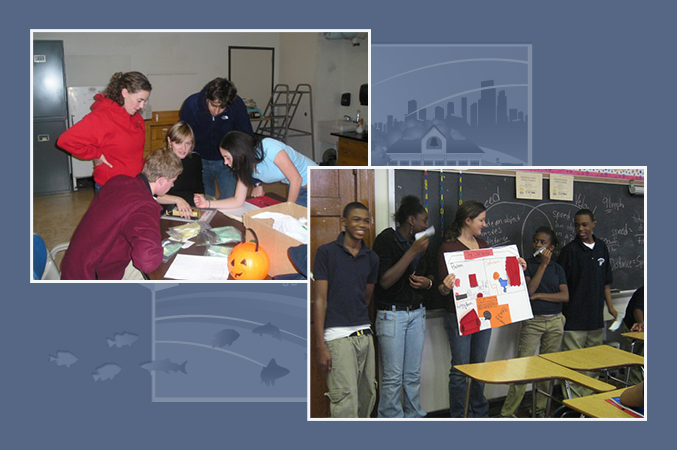
Philadelphia students participate in Academically Based Community Service classes to learn about lead in soil. (Photos courtesy of Marilyn Howarth)
Through the Academically Based Community Services classes, undergraduate students worked with middle and high school teachers to get local students involved in activities to understand environmental research and apply what they learned to their own homes.
“Students and residents who are engaged through citizen science develop a deeper understanding of the hazards of lead in soil in their yards,” said Center of Excellence in Environmental Toxicology researcher Richard Pepino, M.S.S., M.S., who developed and led Academically Based Community Service classes on soil lead. “When the effects feel personal, people are more determined to reduce their risk of harmful environmental exposures.”
Researchers also held soil workshops in partnership with local organizations including the Overbrook Environmental Education Center, Public Citizens for Children and Youth, and government agencies including the Environmental Protection Agency and the Agency for Toxic Substances and Disease Registry.
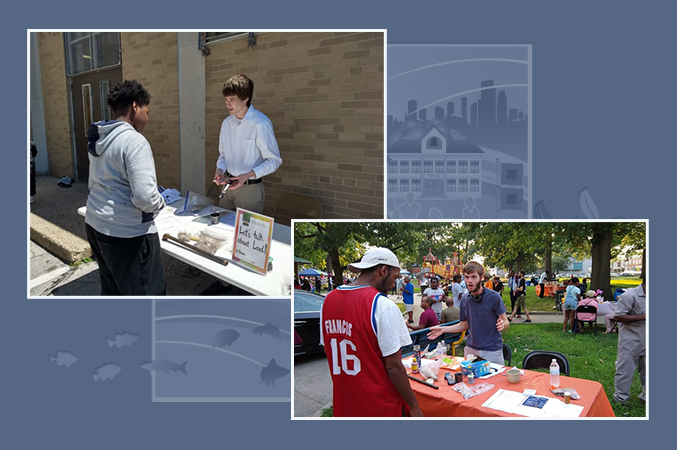
University of Pennsylvania students and researchers participate in soil workshops held in Philadelphia communities. (Photos courtesy of Marilyn Howarth)
The workshops provided an opportunity for residents to drop off soil samples and for researchers to engage with community members by providing information on lead exposure and associated health risks, particularly to children. The workshops were advertised through community newspapers, newsletters, and social media. Instructions on soil collection were provided by partnering organizations on-site. Full instructions and videos on soil sampling were posted on the Community Engagement Core’s website.
In addition to determining the concentration of lead in the soil, the researchers and students recorded the specific geographic coordinates of each sample site, which allowed the samples to be mapped.
“Measuring lead content in soil is one of the best approaches to map lead contamination across different geographic areas,” said Reto Gieré, Ph.D., professor of Earth and Environmental Science, who led the sampling and analysis efforts. “Lead remains in soil over time from industrial sources, such as smelters; materials, such as paint from old buildings; and remnants of lead from gasoline. Contact with soil is one of the primary ways that children are exposed to lead, in addition to direct exposure to lead-based paints in older homes.”
Developing the Index
In addition to soil content, the Lead Index incorporated factors the researchers determined were strongly correlated with exposure to lead, which included:
- Median income
- Number of demolitions
- Percent of children in poverty
- Percent of children with elevated blood-lead levels
- Percent of minority population
- Percent of owner-occupied properties
- Percent of properties built before 1980
Researchers gathered data for each factor from existing datasets and calculated mean values by ZIP code. Soil lead levels were also grouped by ZIP code by taking the median values of all samples in that area. The researchers then assigned weights to the factors by ranking the strength of their association with lead exposure. The Lead Index was calculated for each ZIP code in the city.
“One of our goals is to address environmental justice issues in our region. It is important to document how multiple factors combine to impact vulnerable communities,” stated Marilyn Howarth, M.D., principal investigator of the Community Engagement Core. “Our Lead Index helps to identify those with the greatest socioeconomic inequities who are also at highest risk of exposure to lead. Through ZIP code mapping, we are able to identify areas of vulnerability where remediation may be needed most, and areas that should be protected from additional lead exposure from all sources.”
Using the Lead Index to Make Progress Towards Health Equity
The researchers plan to use the data to target their educational outreach efforts and community partnerships to achieve environmental health equity. Researchers also plan to analyze more samples to strengthen the Lead Index, especially for areas not well represented by the original sampling.
“Our work has provided new strategies for local public health officials. Our index will identify neighborhoods that warrant additional blood screening to promote earlier detection of children with elevated blood-lead levels,” said Pepino.
With Lead Index measures for all areas in the city, the researchers hope to inform policies that would reduce lead exposure for vulnerable communities. This research findings have been provided to the Pennsylvania Department of Environmental Protection, as evidence for addressing the soil lead standard in the state. The Lead Index may also be used by regulators and legislators to prioritize remediation funding and lead service line replacements.
Disaster Health Core Curriculum for Health Care Professionals
The National Center for Disaster Medicine and Public Health offers a Disaster Health Core Curriculum for health care professionals. The course’s 11 online, self-paced lessons cover topics such as personal and family preparedness, professional roles in organizational and community responses, communication, public health principles, and short- and long-term considerations for recovery. Through the American Public Health Association, the curriculum is approved for continuing education credits for various professionals. The foundation of the curriculum is the Core Competencies for Disaster Medicine and Public Health, which established clear, concise, and precise training standards to ensure workforce competency for professionals involved in preparedness, response, and recovery from disasters.
Environmental Health Journal Releases Call for Special Topics
The Journal of Exposure Science and Environmental Epidemiology released a call for proposals for special topics. The journal plans to publish two or three special topics collections throughout 2022 and 2023. Proposals should be formatted as a call for papers that focus on an emerging or underreported exposure science topic and should describe the topic’s novelty and significance to readers. Individuals who submit a proposal have the opportunity to serve as guest editors of the journal. See the journal’s announcement for more details.
Opening for a Perinatal Epidemiology Postdoctoral Fellow at NIEHS
The Fertility and Reproductive Health Group at NIEHS is hiring a postdoctoral fellow in perinatal epidemiology. The candidate should have a strong background in epidemiology and statistical modeling. Experience in environmental health sciences, questionnaire design and implementation, mixtures modeling, and biomarker studies is preferred. Potential research areas include vitamin D and menstrual cycles; air pollution, climate, and fertility; or biomarkers of placental health. For more information, visit the fertility and reproductive health job posting. More information about NIEHS’s career development is available on the Fellows’ Career Development webpage.

PEPH Grantee Highlight
Celia Chen, Ph.D.
Celia Chen, Ph.D., is an aquatic ecologist who studies how pollutants, especially metals, in water affect marine food webs and humans. She is the director of the Dartmouth Toxic Metals Superfund Research Program which focuses on pollutants such as mercury and arsenic. Chen’s research results have informed policies to reduce metal contamination.
Funding Opportunities
Maintaining and Enriching Environmental Epidemiology Cohorts to Support Scientific and Workforce Diversity (U24 Clinical Trial Not Allowed)
Provides support for the maintenance of existing environmental epidemiology cohorts and their associated biorepositories; for the collection or development of additional measures including social determinants of health and structural racism; to facilitate enrollment of understudied populations in biomedical research and follow-up of study participants especially during key windows of susceptibility; enrichment of community engagement and outreach and to provide a structure to facilitate broader sharing of data and resources with the scientific community to strengthen workforce diversity in environmental health science and epidemiology and promote greater scientific collaboration. The scope of the application must address a critical research need and strategic interest that aligns with the mission of National Institute of Environmental Health Sciences.
Deadline: March 8, 2022
Clinical Relevance of the Linkage Between Environmental Toxicant Exposures and Alzheimer’s Disease and Related Dementias (R01 Clinical Trial Not Allowed)
Supports mechanistic and early translational research focused on a more rigorous in-depth examination of the potential interactions of environmental toxins with genetic and non-genetic molecular targets known to influence Alzheimer's disease and Alzheimer's disease-related dementias. Anticipated outcomes include an improved understanding of neurological mechanisms of chemical toxicities related to Alzheimer’s disease and Alzheimer’s disease-related dementias, more evidence-based potential biomarkers of exposure and toxicity for those most at risk, as well as more data to support causality and potential approaches for mitigation.
Deadline: March 11, 2022
Letter of Intent: Due 30 days prior to application due date
Environmental Literacy Program: Increasing Community Resilience to Extreme Weather and Climate Change (NOAA Cooperative Agreement)
Supports projects that develop the collective environmental literacy necessary for communities to take actions that build resilience to extreme weather and climate change in ways that contribute to community health, social cohesion, and socio-economic equity. This funding opportunity is soliciting two types of projects through separate competitive priorities. Priority 1 awards are intended to fund new projects located in Central and Eastern Regions of the United States. Note that pre-applications are required for Priority 1 applications. Only those institutions that receive authorization from NOAA are eligible to submit a full application. Priority 2 awards will support the evolution of projects funded under the 2015-2018 funding opportunities from this program. Projects should demonstrate how they will engage children, youth, and/or adults to build these capabilities, particularly through active and social learning, during the award period. Projects should leverage and incorporate relevant state and local resilience plans and collaborate with individuals and institutions that participate in efforts to develop or implement those plans. Projects should support diversity, equity, inclusion, and climate justice in all aspects of the project.
Deadline: March 17, 2022
Notice of Special Interest (NOSI): Administrative Supplement for Research and Capacity Building Efforts Related to Bioethical Issues (Admin Supp Clinical Trial Optional)
Supports 1) research on bioethical issues to develop or support the development of an evidence base that may inform future policy directions, and/or 2) certain efforts to develop or augment bioethics research capacity. Applicants may propose to supplement parent awards focused on bioethics or to address a component related to bioethics in a biomedical research study. Note that applications must be within the general scope of the parent award. Areas of interest include but are not limited to issues related to the inclusion of Tribal members and American Indian/Alaska Native populations in biomedical research, issues related to health disparities and health inequity, and post-study obligations such as accessing and sharing benefits of research. NIEHS is interested in bioethics applications that address topics relevant to its mission and research priorities as provided in its strategic plan. Applications for this funding opportunity occur through Administrative Supplements to Existing NIH Grants and Cooperative Agreements (Parent Admin Supp Clinical Trial Optional).
Deadline: March 17, 2022
Notice of Special Interest (NOSI): Support for Existing Data Repositories to Align With FAIR and TRUST Principles and Evaluate Usage, Utility, and Impact
The goal of this NOSI is to provide support for existing NIH-supported repositories to improve their adoption of the Findable, Accessible, Interoperable, Reusable (FAIR) and Transparency, Responsibility, User focus, Sustainability, and Technology (TRUST) principles and to develop ways to measure their effectiveness to the research communities they serve. Prospective applicants are required to conduct a self-assessment to identify gaps or deficiencies in “FAIR”-ness and “TRUST”-worthiness that are unique to their data resource and consider which metrics could be implemented for evaluation of usage, utility, and impact. Based on the self-assessment, applicants must identify how they would improve the impact of their unique data resource.
Deadline: March 22, 2022
Environmental Justice Video Challenge for Students
The EPA and partners have launched the Environmental Justice Video Challenge for Students to enhance communities’ capacity to address environmental and public health inequities. The goals of the challenge are to 1) inspire students at accredited colleges and universities in the U.S. and its territories to work directly with communities in the identification and characterization of environmental justice challenges using data and publicly available tools, and 2) help communities (including residents and other stakeholders) address environmental justice challenges and/or vulnerabilities to environmental and public health hazards using data and publicly available tools. There are two phases for the challenge. In Phase 1, students will create a video to demonstrate innovative approaches to identify and characterize an environmental justice issue(s) in a select community using data and publicly available tools. Students are strongly encouraged to work in teams and identify and collaborate with community organizations that may bring important understanding and perspective to the environmental justice challenge(s) the community is facing. In Phase 2, students will develop a video to display how they used data and publicly available tools to identify strategies and opportunities to address an identified environmental justice issue(s) and worked with a community-based organization(s) to inform strategies for intervention and/or facilitated effective community engagement and advocacy on the environmental justice issues. Phase 1 of the challenge is currently open. Details on Phase 2 will be posted at a future date. Registration for an informational webinar is now open.
Deadline (Phase 1): April 1, 2022
Notice of Special Interest (NOSI): Administrative Supplements to Recognize Excellence in Diversity, Equity, Inclusion, and Accessibility (DEIA) Mentorship
Supports administrative supplements to existing awards of scientists who are outstanding mentors and who have demonstrated compelling commitments and contributions to enhancing diversity, equity, inclusion, and accessibility in the biomedical sciences. Excellent mentorship and superior training are critical to the development of exceptional future scientists. This administrative supplement recognizes the crucial role great mentors play in the development of future leaders in the scientific research enterprise. As administrative supplements, the work proposed needs to be within the scope of the research or training that is already supported. The award must have a component related to mentoring. Examples include but are not limited to: a research education program that describes mentored research experiences, a career development section, a plan to enhance diverse perspectives, or a discrete objective related to mentoring.
Deadline: April 7, 2022
Intervention Research to Improve Native American Health (R01 Clinical Trial Optional)
Supports research on interventions to improve health in Native American (NA) populations. This includes 1) etiologic research, where there is a significant gap in knowledge, that will directly inform intervention development or adaptations, 2) research that develops, adapts, or tests the efficacy or effectiveness of health promotion and disease prevention interventions, 3) research that tests culturally informed treatment or recovery interventions and 4) where a sufficient body of knowledge on intervention efficacy exists, research on dissemination and implementation that develops and tests strategies to overcome barriers to the adoption, integration, scale-up, and sustainability of effective interventions. Through this initiative, intervention and related research is sought to build upon community knowledge, resources, and resilience to test science-based, culturally appropriate solutions to reduce morbidity and mortality through identification and remediation of precursors to diseases and disorders and through culturally informed treatment.
Deadline: May 17, 2021; May 17, 2022; May 17, 2023
Letter of Intent: Due 30 days prior to the application due date
Support for Research Excellence Award (R16 Clinical Trial Not Allowed)
The purpose of Support for Research Excellence (SuRE) awards is to provide research grant support for faculty investigators who have prior experience in leading externally funded, independent research but are not currently funded by any NIH Research Project Grants with the exception of SuRE or SuRE-First awards. Awards are open to institutions that receive no more than $6 million per year from NIH Research Project Grants and additionally enroll at least 25 percent of undergraduate students supported by Pell grants or are an accredited medical/health professional school with a historical mission statement that explicitly states that it was founded to educate students from nationally underrepresented backgrounds.
Deadlines: May 26, 2022; May 26, 2023
Notice of Special Interest (NOSI): Epidemiologic Studies in Asian Americans, Native Hawaiians, and Pacific Islanders (Parent R01 Clinical Trial Not Allowed)
Encourages fundamental epidemiological research geared toward understanding the inter-relationships of biological, lifestyle/behavioral, environmental, and sociocultural factors and how these factors may impact health disparities and outcomes in Asian American, Native Hawaiian, and Pacific Islander subpopulations. Epidemiological inference is enhanced with variation in study designs; therefore, investigators may leverage a range of design methods in response to this NOSI, including electronic health record databases, registries, cohort studies, and cross-sectional surveys. Applications may propose leveraging existing studies or data, or may propose new data collection. To be considered responsive to this NOSI, applicants must propose to study at least one specific subpopulation of Asian Americans, Native Hawaiians, and Pacific Islanders. NIEHS applications to this funding opportunity occur through Research Project Grant (Parent R01 Clinical Trial Not Allowed), Addressing the Etiology of Health Disparities and Health Advantages Among Immigrant Populations (R01 Clinical Trial Not Allowed), and The Role of Work in Health Disparities in the U.S. (R01 Clinical Trials Optional).
Deadlines: February 5, 2022; June 5, 2022
Revolutionizing Innovative, Visionary Environmental Health Research (RIVER) (R35 Clinical Trial Optional)
The RIVER program is intended to invest in people rather than projects; rewarding individuals from the NIEHS recipient community who demonstrate a broad vision and potential for continuing their impactful environmental health research and who are most likely to benefit from a program emphasizing flexibility and sustained support. Only single principal investigator applications are allowed. Key features and benefits of the program fall into two large categories: 1) freedom from traditional focused specific aims and a structured research plan which will enable investigators to pursue new directions in their research as they arise throughout the funding period, and 2) the ability to devote increased effort to research, mentoring, and scientific service due to reduced time spent writing and managing multiple grant applications and awards.
Deadline: June 9, 2022
Letter of Intent: Due 30 days prior to the application due date
Lasker Clinical Research Scholars Program (Si2/R00 Clinical Trial Optional)
The Lasker Clinical Research Scholars program will offer applicants the opportunity to compete for a unique combination of intramural and extramural resources for clinical research. The program will support a small number of exceptional clinical researchers in the early stages of their independent careers to promote their development as fully independent scientists. The program combines a period of research experience as a tenure-track investigator in the Intramural Research Program with additional years of independent financial support, either within the Intramural Research Program or at an extramural research institution. Successful applicants will receive support in two phases: 1) support for scholars in the Intramural Research Program for up to 5 years, with the possibility of an extension for an additional 2 years; and 2) either continued Intramural Research Program support, or up to 3 years of support to continue research as an independent clinician scientist at an extramural institution.
Deadline: June 24, 2022
Research Enhancement Award Program (REAP) for Health Professional Schools and Graduate Schools (R15 Clinical Trial Not Allowed)
The REAP program will enable qualified scientists to receive support for small-scale research projects. It is anticipated that investigators supported under the REAP program will benefit from the opportunity to conduct independent research; that the grantee institution will benefit from a research environment strengthened through REAP grants; and that students at recipient institutions will benefit from exposure to and participation in scientific research in the biomedical sciences so that they consider careers in biomedical research. The REAP funding opportunity emphasizes the engagement and inclusion of health professional, undergraduates, and/or graduate students in research. Since diversity strengthens the research environment, REAP grantees are encouraged to recruit and include students from diverse backgrounds, including those from groups underrepresented in the biomedical research workforce. NIEHS will accept applications describing research projects that will have a defined impact on the environmental health sciences and must have a research focus on exposure-health related responses from environmental agents within the mission interest of the NIEHS.
Deadlines: June 25, 2022; October 25, 2022




